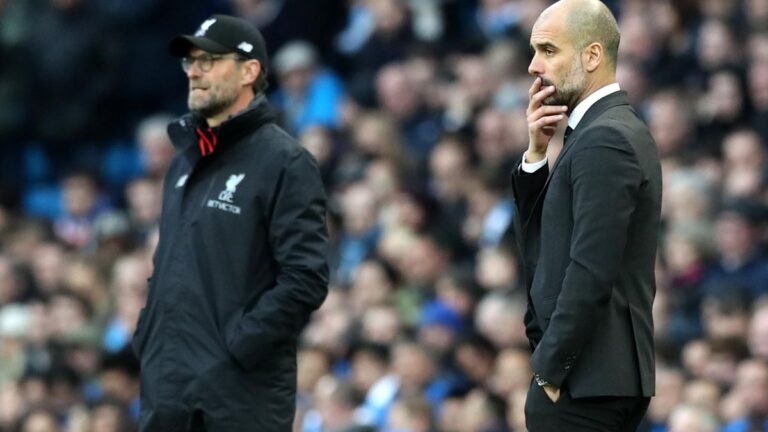Data is increasingly playing a more and more important role in football, but that should not come as a surprise. Data, information, analysis, statistics, whatever form it comes in or whatever you want to call it, is everywhere in today’s world particularly when it comes to business, and is the driving force behind almost every decision made. And, as we are constantly told, football is a business.
As pastimes and hobbies previously thought of as pursuits purely for leisure cross over into possible revenue streams and even genuine employment choices, the information superhighway follows suit by supplying us with all the data you could ever want for that particular pursuit. You would look at the data, stats and analysis according to Pokernews for data on pro poker players and tournaments, whereas if its info on e-sports that you are looking for, you would go to EScharts. It is surprising then that for what is the most important job at a football club, the job that dictates the identity of the club as well as the success it does or not enjoy, there is precious little data to hand, especially when it comes to selecting the person for that role.

You cannot move for data and statistics on footballers, and they are used as a stick to criticise players as much as a measure to heap praise on them. It is not just the goals they score, the assists they set up, but the amount of runs they make, the type of runs they make; the number, type and success of their passes, the challenges, the headers, the blocks, the… well, the list goes on and on. Today a manager has so much data with which to analyse a player’s performance – not just on the pitch in a game but in training as well, that clubs have been forced to employ specialists to collect, collate and analyse it all. A manager will also have almost as much data on opposing teams, giving him every possible advantage to outwit his counterpart in the adjoining dugout. When it comes to the players’ or team’s managers however there is really only one statistic that is ever mentioned, and that is win percentage.
One answer for why this is the case, is to look at the roles of the two different parties. Players have the fitness side of things that requires them to be constantly monitored on to ensure they are fit for purpose so to speak, as well as to identify and tackle any potential injuries or musculature issues. Then there is the data on how they are actually performing on the pitch itself. The distance they travel, the number of sprints, the amount of tackles, interceptions, key passes etc as we have already mentioned. You can think of the players as individual components of the team, each part monitored to see how it is performing. When they all come together they cease to be individuals, but a team and it is there that the responsibility shifts over to the manager, at least in terms of where the blame is apportioned.
The stats don’t lie
The recent criticism of Solskjaer’s Manchester United focussed on his players’ lack of energy, and particularly their inability or unwillingness to press. That can be viewed as faults of each individual, but it was the man in the dugout of course that got the vast majority of the criticism, and of course ended up losing his job as a result. So there are in fact statistics where a manager is judged, but it seems that they are almost only ever used when they are already in a role. The stats for Solskjaer’s team made for depressing reading compared with those for the Liverpool team that dismantled them, and indeed the Manchester City and Watford teams that did likewise and finally ended his tenure at the club.

Now he has gone, it will be his win percentage that will be trotted out, the stats for the games, the miles run by his players, their sprint percentages etc etc, all the things that were used to beat him with, will gradually fade into the mists of history. The win percentage cannot hope to tell the whole story of a manager’s time at a club, which is alarming when you think that for most of the time, that is the sole yardstick managers are judged by. At Manchester United, Solskjaer achieved a win percentage of 54.17%. José Mourinho’s was 58.33% during his stint at the club. Louis van Gaal and David Moyes had 52.43% and 52.94% respectively. Just for the record, Sir Alex Ferguson’s was 59.67% while Sir Matt Busby (in his first spell at the club) achieved a win percentage of 50.45%.
Though the data on the players does not exist from more than a few years ago, it would be a pointless comparison, judging players of a different era with their counterparts today. It is a completely different game, the energy, strength and fitness levels are on another scale, plus of course the increased number of substitutes allowed in today’s game also helps. It is perhaps disingenuous to compare managers from different eras too, but looking at the managers of today it shows what a stunning job Pep Guardiola has done. His win percentage at Manchester City is 73%.
There is one more statistic that trumps all others when it comes to managers. How many trophies they have won. Mourinho notched up three while at Old Trafford, and Solskjaer’s inability to win anything did not help fend off the critics. When you are the manager of Manchester United, you not only need to be shown to be improving and competing with the best, you also have to win things, and at the end of the day that is what managers whether they like it or not, will always be judged on.

It is interesting to speculate on where the game goes with this. Data and our ability to gather it and provide (what we hope) will be meaningful analysis, hypotheses and conclusions from that is only going to increase. So, it is very likely, will our appetite for said analysis, hypotheses and conclusions. There will be a point where there will be nothing more we can squeeze out of players in terms of statistics, so the logical step is that the attention will turn towards the team as a whole, and the man stood on the edge of his technical area, responsible for making them tick.
















